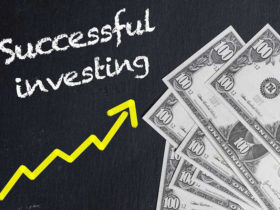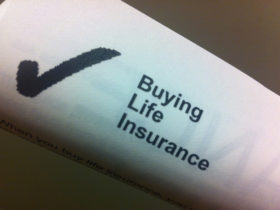As the bull market roars on more and more individual investors are reconsidering the stock market after swearing it off forever just a few years ago when their stocks nosedived 30% and more.
But now the opposite is happening and they’re understandably reluctant to stand idly by and watch others rake in bull-market profits.
So lots of people are looking for a good stockbroker, with emphasis on "good." The worst case scenario, of course, is to get involved with a broker who’s deceived or cheated clients in the past or has other serious complaints against him/her.
Your first question, then is, How can you check out a broker?
Basically, you’re looking for red flags that might warn you away from a person or brokerage, such as a history of disciplinary actions or some sort of licensing problem or employment problem (e.g., the broker was fired from a previous job).
The source of this type of background information is the Central Registration Depository System (CRD). This computerized database, maintained by the North American Securities Administrators Association (NASAA), contains licensing and registration information on virtually all stockbrokers and brokerage firms in the U.S. You can access the database for free or for a nominal fee through your state securities regulator. You can obtain a report on a broker and/or brokerage firm by calling the appropriate state securities regulator. The broker will not be advised or this request. (Alternatively, you can visit NASAA.org and click on "Find Regulator.") Yet another way to access this type is info is FINRA’s Broker Check Program.
Incidentally, if you should ever need to file a complaint regarding a broker, you can usually do so through your state regulator’s website.
CRD Data Available
What background information can you get from a CRD report obtained from NASAA? Available information varies somewhat by state but usually you can get the following–
Brokers:
— Employment history for the past 10 years
— Securities examination scores
— Licensing or registration status
— Disciplinary history (if any)
Brokerages:
— Final disciplinary actions relating to securities or commodities businesses that have been taken by federal, state, and foreign regulators as well as self-regulatory organizations.
— Civil judgments and arbitration decisions in securities and commodities disputes involving public customers.
— Criminal convictions or indictments against registered or licensed brokerage firms and their associated persons.
— Settlements of $10,000 or more among the parties to arbitrations, civil suits, and customer complaints involving securities or commodities transactions.
— Employment terminations after allegations involving violations of investment-related statutes or rules, fraud, theft, or failure to supervise investment-related activities.
— Bankruptcies filed within the last 10 years and outstanding liens and judgments
— Pending disciplinary actions taken by industry regulators that relate to securities or commodities business.
— Pending arbitrations and civil proceedings involving securities or commodities transactions.
— Pending written complaints alleging sales practice violations and compensatory damages of $5,000 or more.
FINRA’s Broker Check Program
The Financial Industry Regulatory Authority (FINRA) is the U.S. security industry’s self-regulatory body. It was created in July 2008 through the consolidation of the National Association of Securities Dealers (NASD) and the regulatory/enforcement division of the NY Stock Exchange. FINRA has 15 offices throughout the country and employs over 3,000 people.
As an alternative to the CRD report discussed above, you may wish to consult FINRA’s offers a BrokerCheck report, which is essentially the same as the CRD report discussed above. It contains almost as much information and some feel it is a bit easier to access. To obtain the BrokerCheck report go to Finra.org and click on "Investors," then on "FINRA BrokerCheck" on far right of screen.















